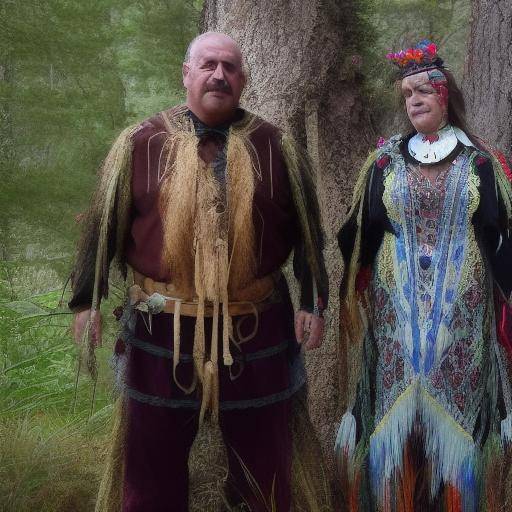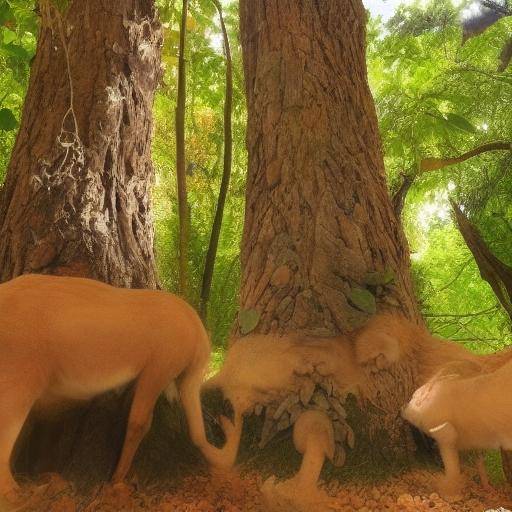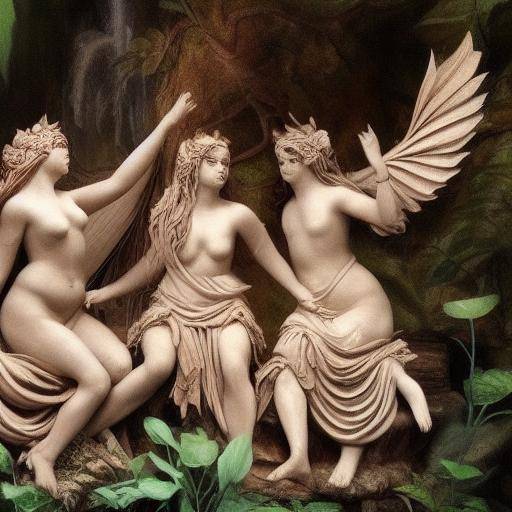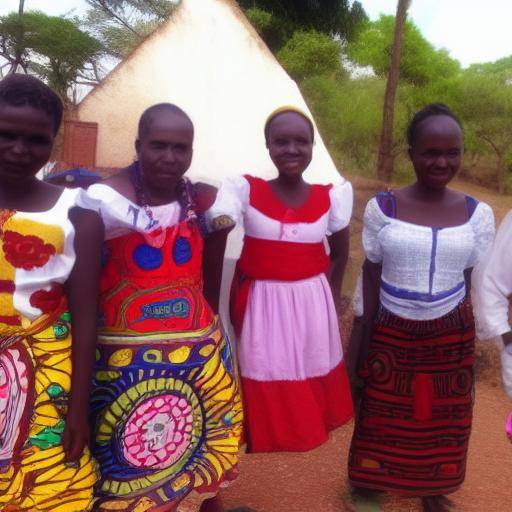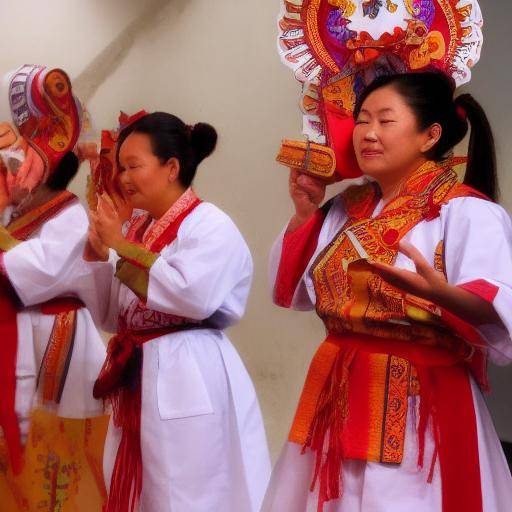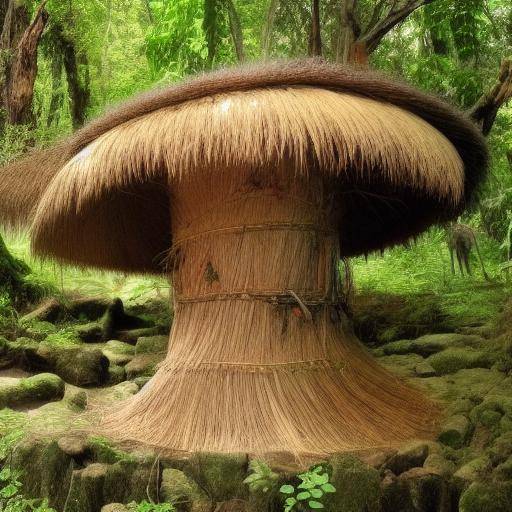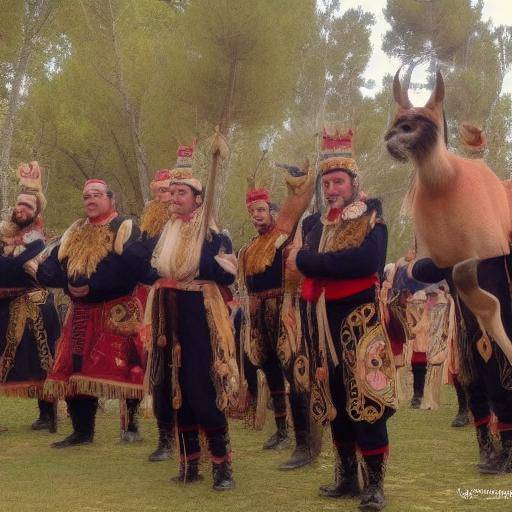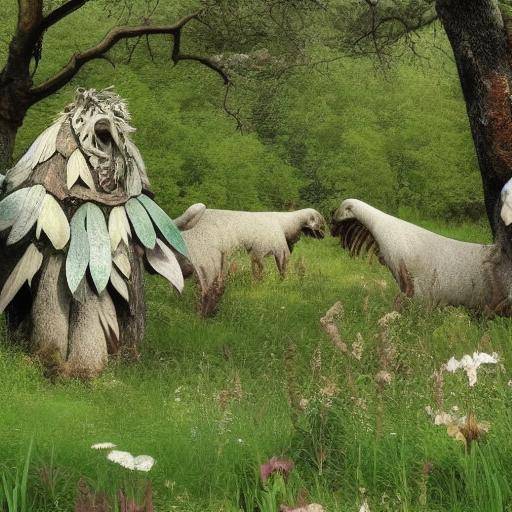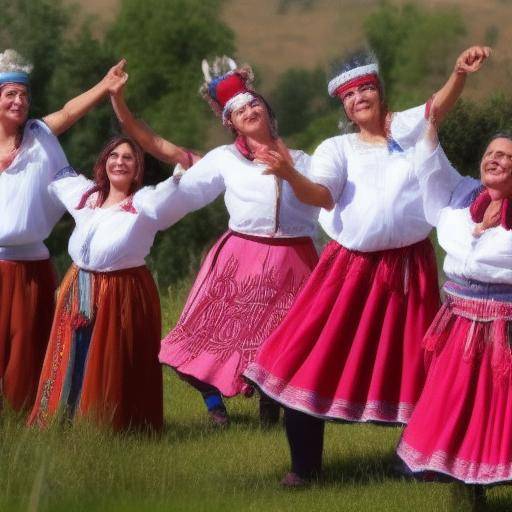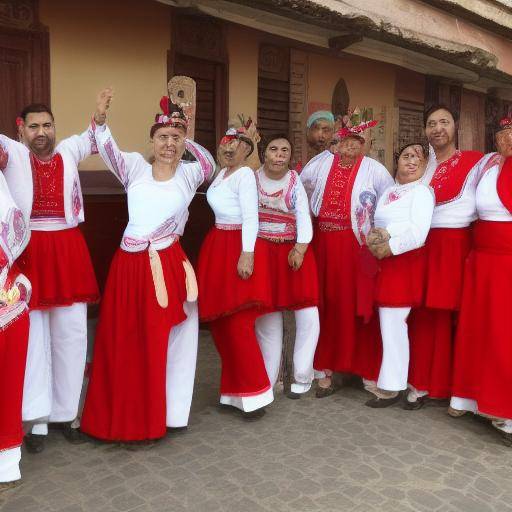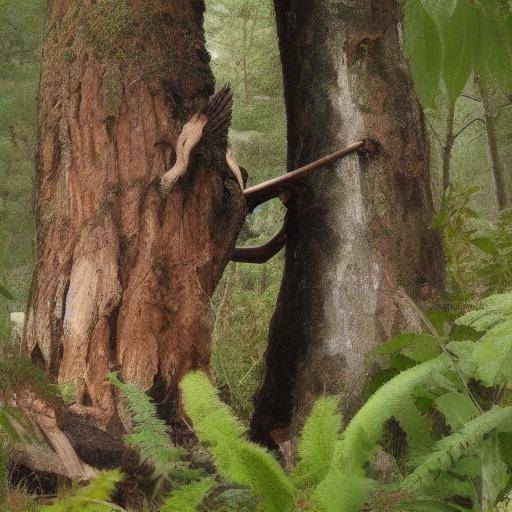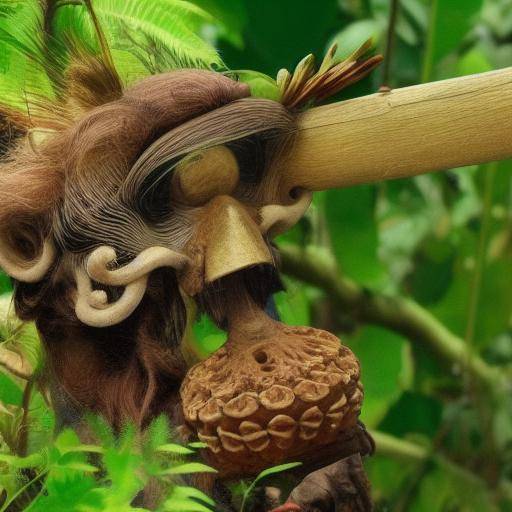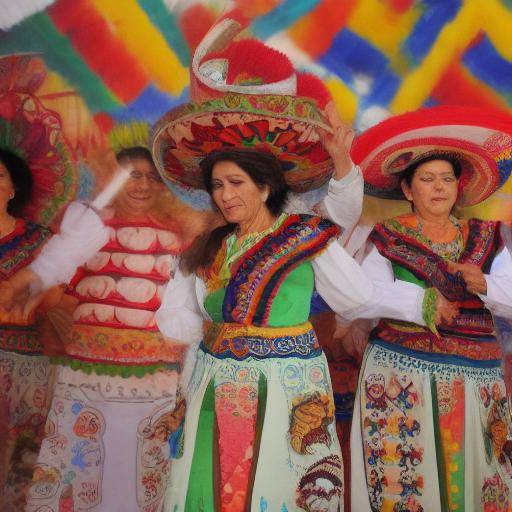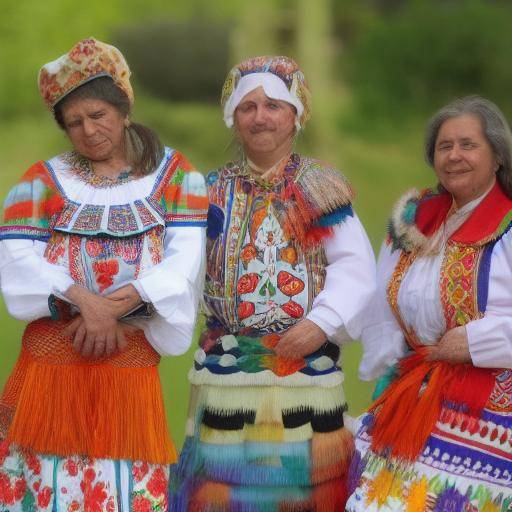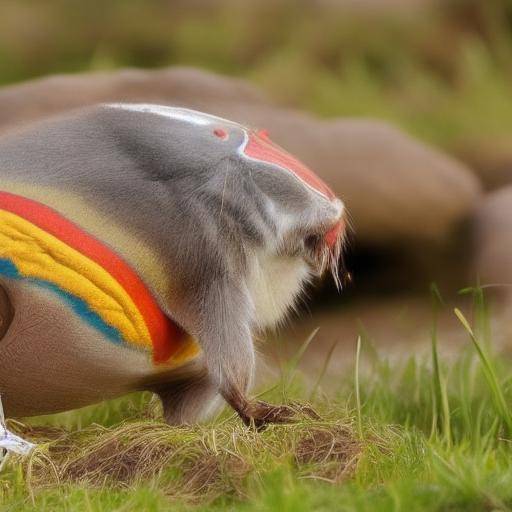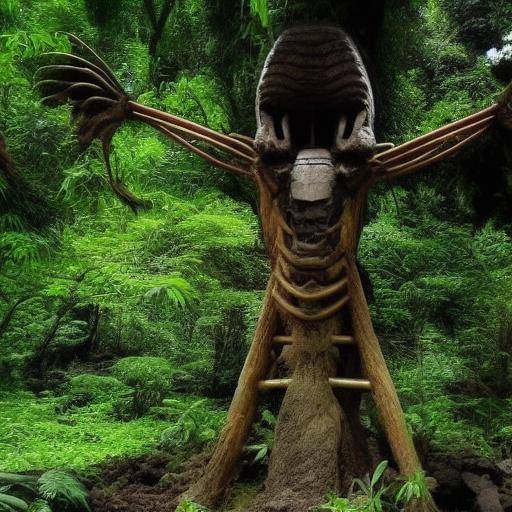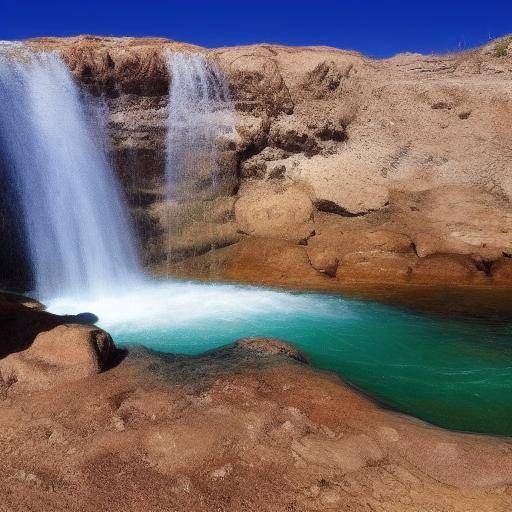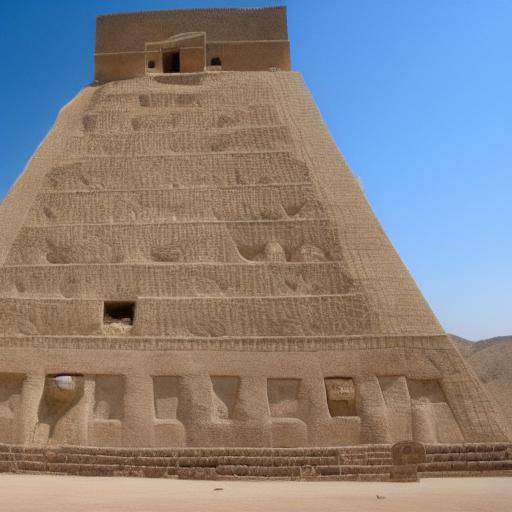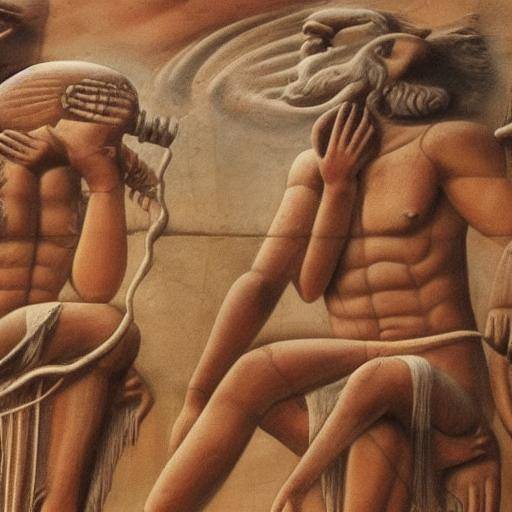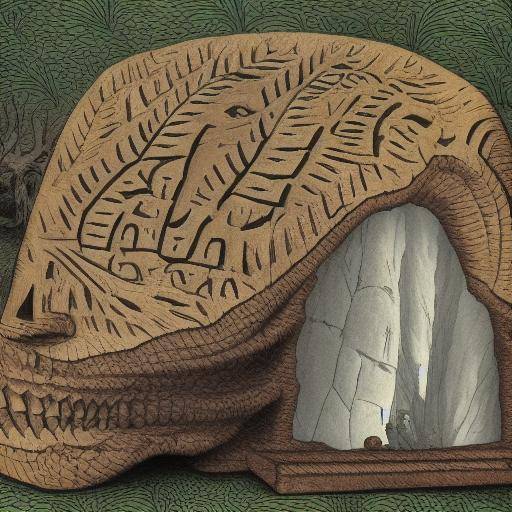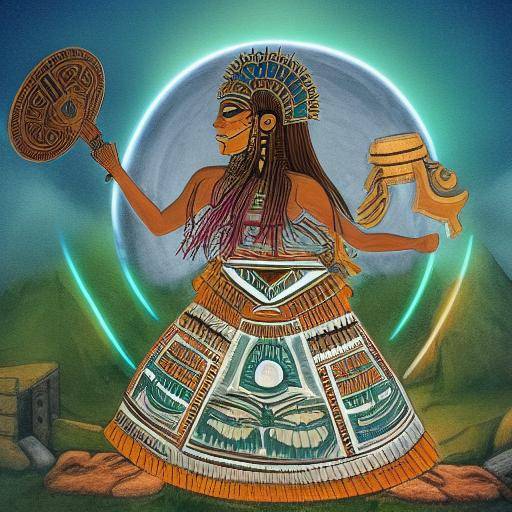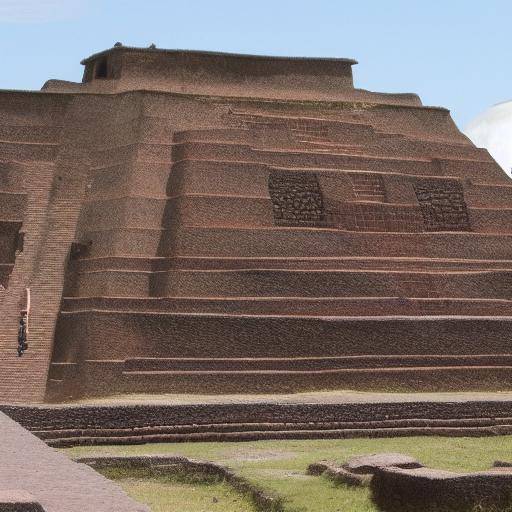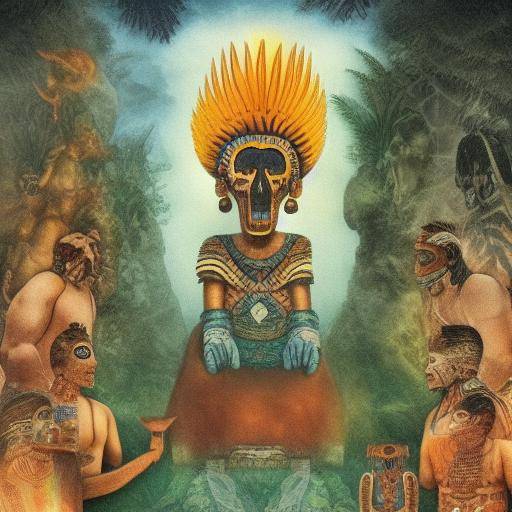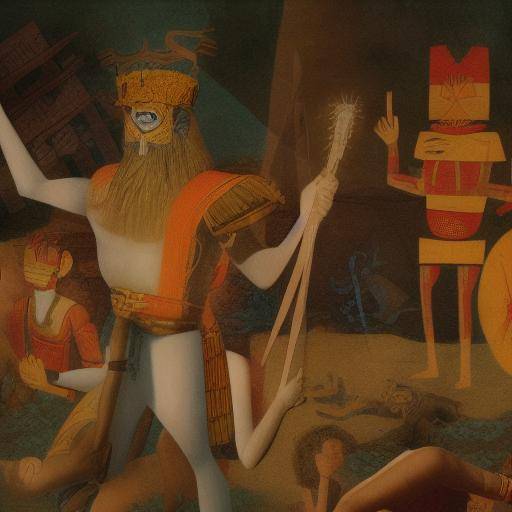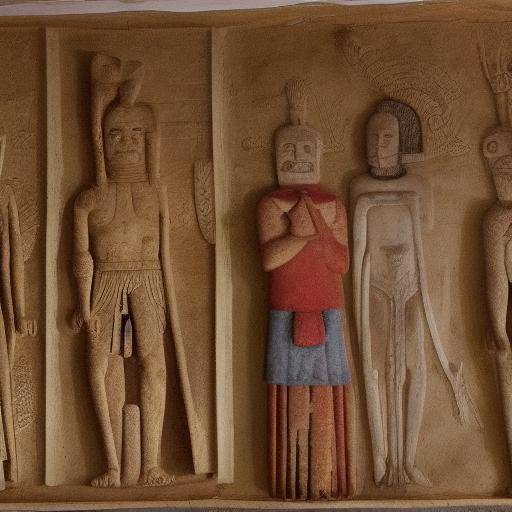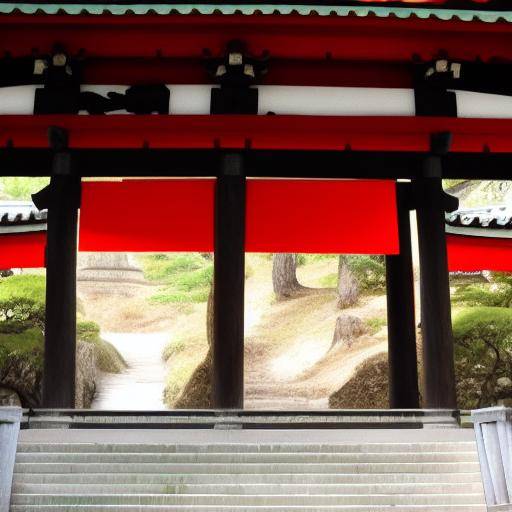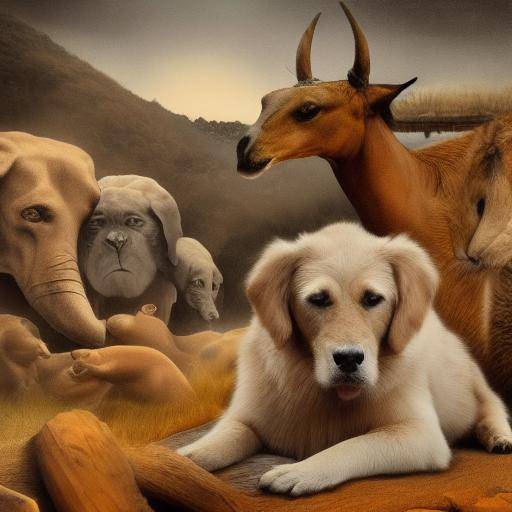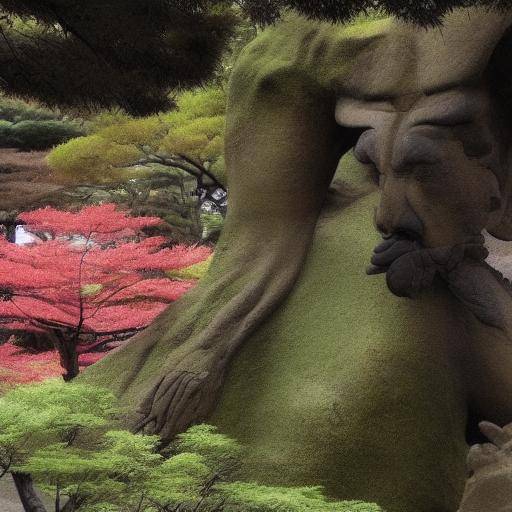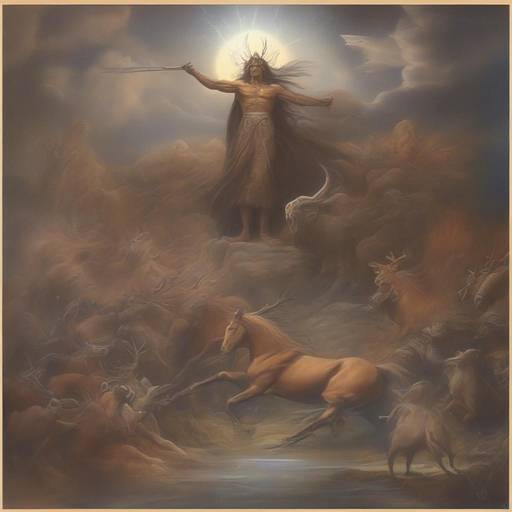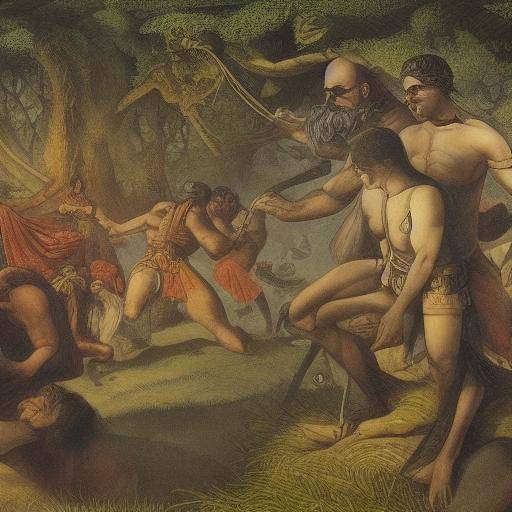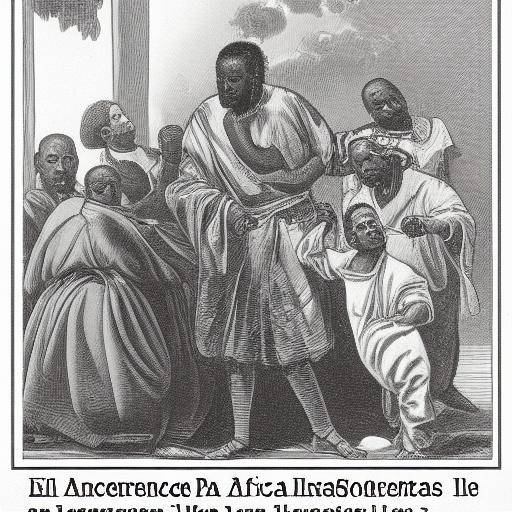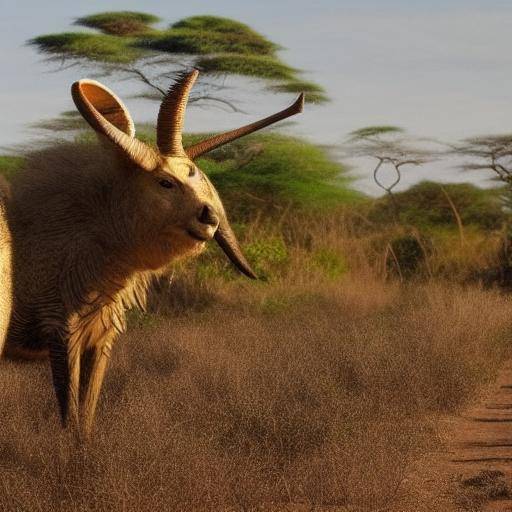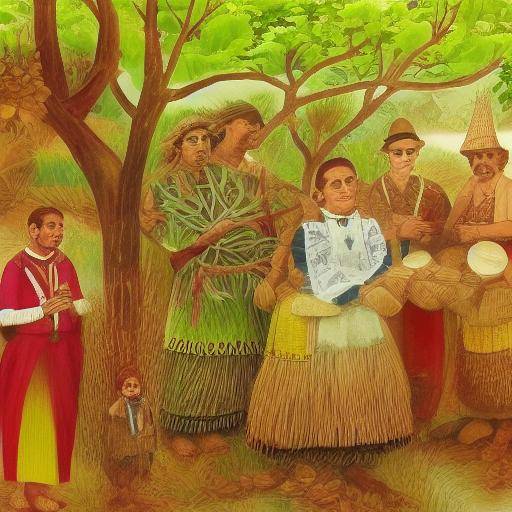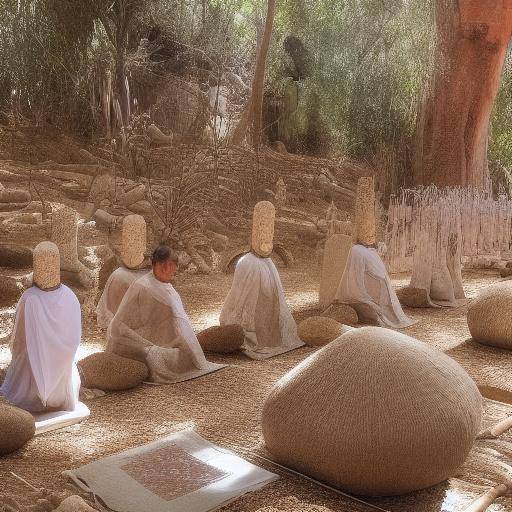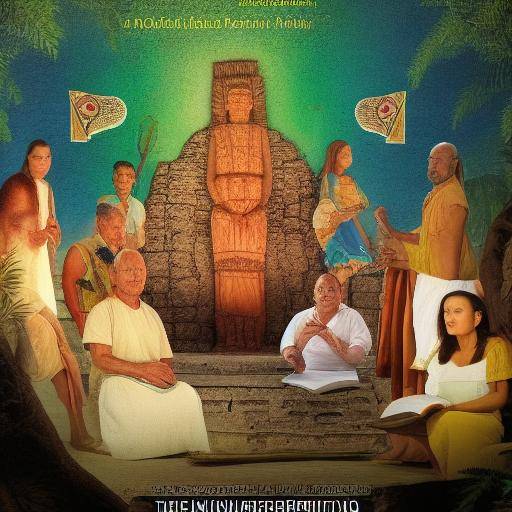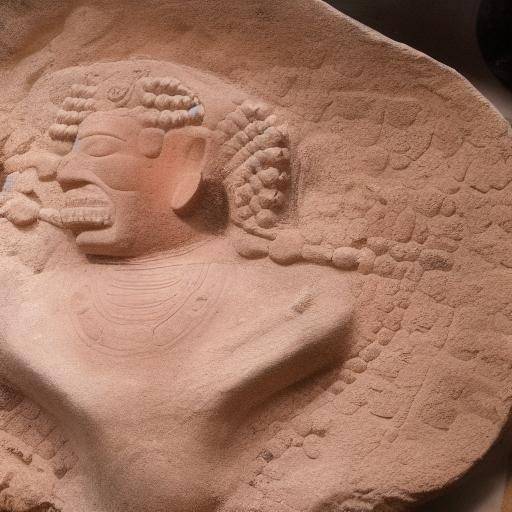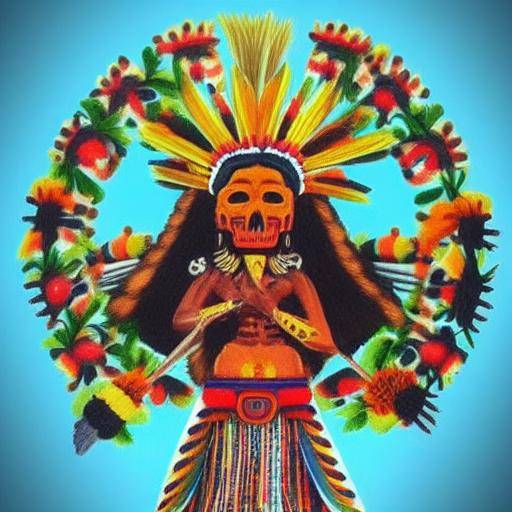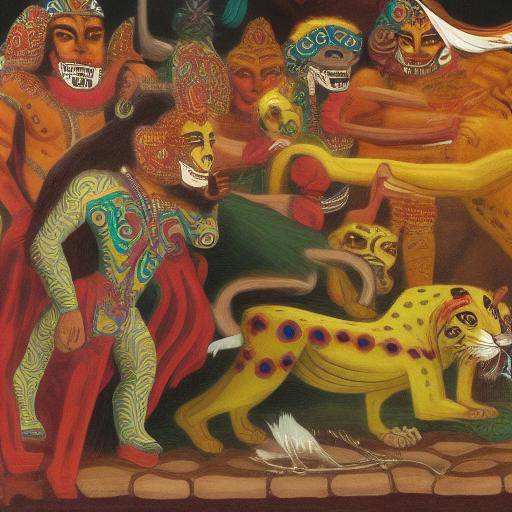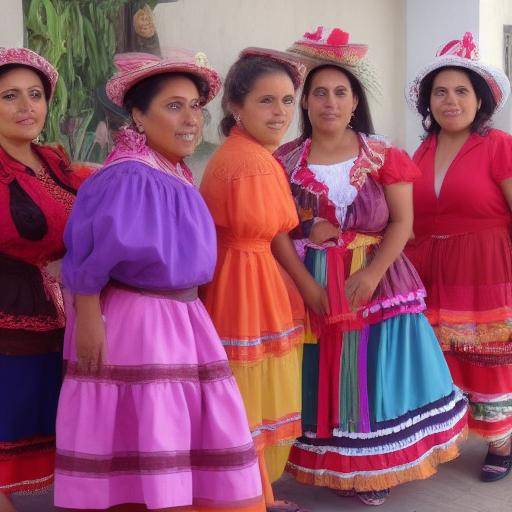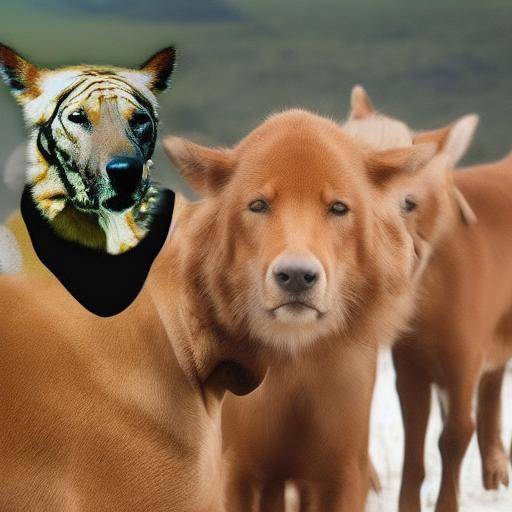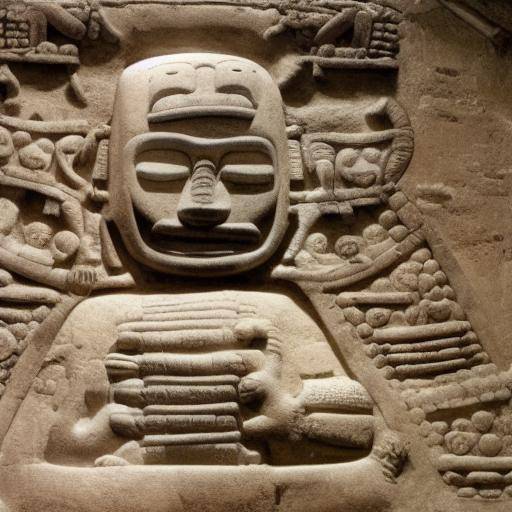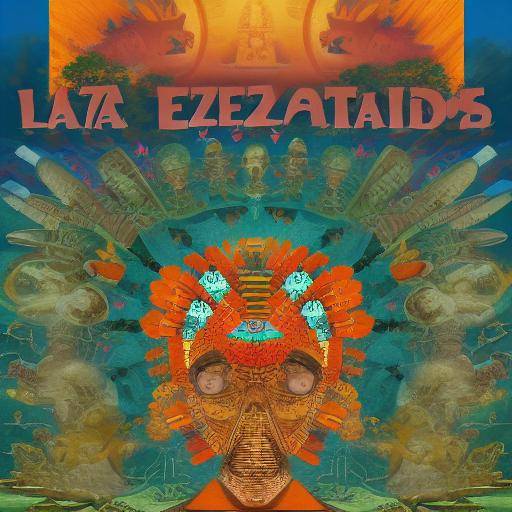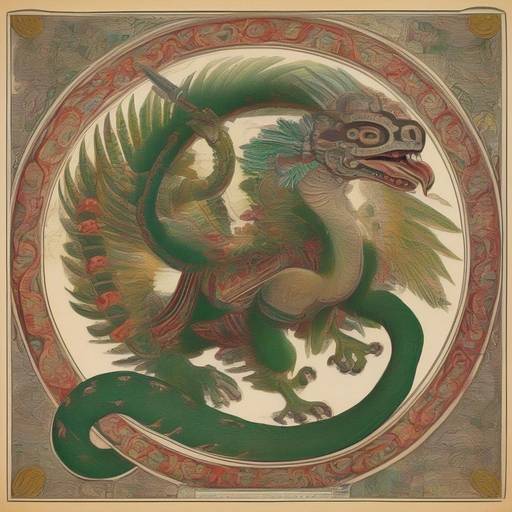
Nature has been an essential part of life and beliefs of different cultures throughout history. In the context of pre-Columbian myths, the connection with nature acquires an even deeper meaning, influencing not only religious beliefs, but also the way in which these civilizations related to their environment. In this article, we will explore the importance of nature in pre-Columbian myths, its influence on beliefs, and how these connections last today.
Introduction
Pre-Columbian myths represent an integral part of the rich cultural heritage of civilizations that inhabited America before the arrival of Europeans. These myths not only provided explanations about the origin of the world and natural phenomena, but also served as ethical and normative guides for society. A distinctive feature of many of these myths is the deeply rooted connection to nature, which is reflected in the beliefs, rituals and practices of these ancient cultures.
History and Background
Pre-Columbian civilizations, such as Aztecs, Mayas and Incas, developed complex conceptions about the role of nature in the universe and human life. Natural rhythms, meteorological phenomena and ecosystems were seen as manifestations of divinities or higher forces with which a relationship of respect and harmony should be maintained. These beliefs were manifested in ceremonies, offerings and rituals that sought to ensure the balance between human beings and their natural environment.
The Myths in the Pre-Columbian Cosmovision
Pre-Columbian myths addressed the creation of the world, the origin of human beings, the deities that governed the natural elements, and the interaction between the earthly world and that of the gods. These narratives conveyed the importance of venerating and understanding nature as a living and spiritual entity. For example, for the Mayas, corn was a sacred representation of divine influence in agriculture and human survival, which was reflected in their associated myths and rituals.
Deep analysis
Pre-Columbian Belief Watch
Despite the colonization and influence of new religious currents, beliefs in connection with nature persist in many indigenous communities in Latin America. These beliefs continue to have an impact on the way nature is conceived and interacted today, both in rural and urban areas.
Impact on News
The pre-Columbian vision of nature as a sacred entity has left a lasting legacy in the worldview of numerous Latin American communities. The persistence of traditional practices, such as ceremonies in honour of the Pachamama or respect for natural cycles, reflects the continued influence of pre-Columbian myths in relation to nature in the region.
Pre-Columbian myths and the Environment
Understanding nature in pre-Columbian myths offers valuable insights to address current environmental challenges. The notion of reciprocity and balance with nature, present in these old beliefs, resonates in the call for sustainability and respect for the natural environment in contemporary society.
Comprehensive review
Relevance in the Modern Age
The rediscovery and revaluation of pre-Columbian myths today offer an opportunity to reconsider the human relationship with nature. Recognition of the ancestral wisdom that worshiped and protected the integrity of nature can provide substantial lessons to address environmental challenges and promote a more harmonious and sustainable vision of the world.
Conclusion
Pre-Columbian myths reveal the deep connection between indigenous civilizations and nature, which transcends time and remains relevant today. This cosmovision offers significant teachings on respect, reciprocity and harmony with the natural environment, values that become increasingly important in the pursuit of a sustainable balance between humanity and the planet. By exploring these myths and beliefs, we can enrich our understanding of nature and find inspiration to promote a more conscious and respectful world towards our environment.
Frequently asked questions
What role did nature play in pre-Columbian myths?
Pre-Columbian civilizations saw nature as a sacred entity, where natural phenomena, animals, plants and elements acquired a divine character. This vision influenced his myths, rituals and beliefs about the origin of the world and the interaction between gods and human beings.
In what aspects is the connection between nature and pre-Columbian myths reflected today?
Pre-Columbian beliefs still influence many indigenous communities, both in traditional ceremonies and in the relationship with the environment. This connection is manifested in respectful practices towards nature and the promotion of reciprocity values and balance with the natural environment.
How can pre-Columbian myths offer relevant teachings for contemporary environmental challenges?
The vision of reciprocity and balance with nature present in pre-Columbian myths can inspire new strategies to address current environmental challenges. These lessons provide a valuable perspective on the importance of respecting and protecting the integrity of nature.
How can pre-Columbian beliefs influence how we conceive the relationship with nature today?
Pre-Columbian beliefs provide a reconnection with the spirituality of nature, inviting a more holistic and conscious view of the human relationship with the natural environment. This influence can foster greater sensitivity to the environment and promote sustainable practices.
Are there contemporary initiatives that seek to preserve and promote the teachings of pre-Columbian myths about nature?
Yes, there are initiatives that seek to preserve and disseminate the teachings of pre-Columbian myths about nature, both at the community level and through educational programs and research projects. These initiatives seek to enhance the cultural and spiritual wealth of indigenous traditions.
How can the teachings of pre-Columbian myths influence environmental policies and global awareness of sustainability?
The teachings of pre-Columbian myths can inspire the formulation of environmental policies that promote respect and protection of nature. In addition, these lessons can influence global awareness of the importance of adopting sustainable and environmentally responsible practices.
In conclusion, the connection between nature and pre-Columbian myths represents an invaluable cultural legacy that invites us to reflect on our relationship with the natural environment and to seek new ways of preserving and protecting the diversity and integrity of nature. This ancestral knowledge can enrich our contemporary understanding of nature and offer guidance to promote more respectful and sustainable practices in our world. By honoring and learning from these old beliefs, we can cultivate greater harmony and balance with nature, guided by respect, reciprocity and reverence for the living being that sustains and sustains all life on Earth.

